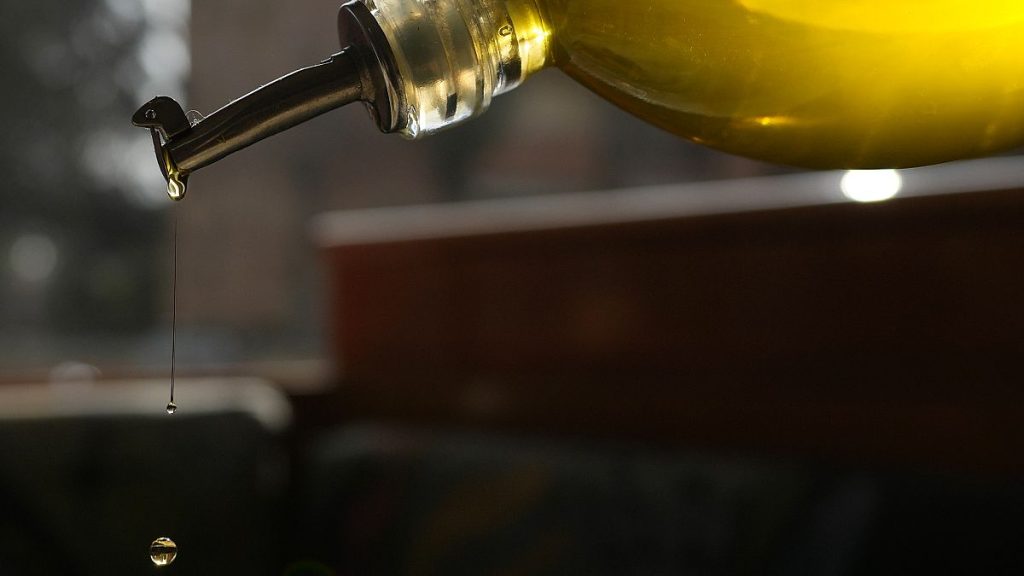Spanish olive oil producers are accusing large supermarkets of making excessive profits at the expense of consumers. Despite the fact that the initial price of olive oil products has only increased by 3%, supermarkets are selling them at a 59% markup. The farmers claim that this is unfair, especially considering the challenges they have faced with heatwaves and drought affecting production. Spain, the world’s largest olive oil provider, is expecting a 50% drop in production this year. This has led to shortages and an increase in prices, creating a favorable environment for counterfeit products to thrive. Consumer organizations, however, are calling for lower prices, despite the elimination of value-added tax on olive oil in Spain.
Supermarkets are denying any wrongdoing, with the director of the Association of Supermarkets of the Valencian Community stating that the price of virgin olive oil has remained consistent throughout the year. However, consumers are still feeling the pinch and are responding by opting for cheaper alternatives like sunflower oil. Surprisingly, sunflower oil has become the most popular choice in Spain, even though olive oil is a staple of the Mediterranean diet. In the first half of the year, Spaniards purchased 179 million liters of sunflower oil compared to 107 liters of olive oil. This shift in consumer behavior has had a significant impact on the market, with olive oil sales decreasing from 62% to 34% in favor of sunflower oil.
The situation has been further exacerbated by the effects of climate change on olive oil production. Heatwaves and drought have severely impacted the industry in recent years, leading to a decrease in output. This has created opportunities for counterfeit products to enter the market, posing a threat to both consumers and legitimate producers. Spanish farmers are calling for action to address the imbalance in pricing and ensure fair treatment for both producers and consumers. They argue that supermarkets are taking advantage of the situation to boost their profits while consumers bear the brunt of higher prices. Despite efforts to regulate the market, the challenges facing the olive oil industry in Spain continue to persist, impacting both farmers and consumers alike.
The debate over olive oil prices in Spain has reignited discussions about the broader implications of food pricing and distribution. The tension between producers, supermarkets, and consumers highlights the complexity of the market and the challenges faced by all stakeholders. While supermarkets maintain that they are not inflating prices, consumer organizations argue that the cost of olive oil remains too high, driving consumers to seek out more affordable alternatives. This shift in consumer behavior underscores the need for greater transparency and accountability in the food industry to ensure fair pricing and protect the interests of both producers and consumers.
The olive oil industry in Spain is at a crossroads, facing challenges from various factors such as climate change, market dynamics, and consumer preferences. The excessive profits being made by supermarkets at the expense of consumers have raised concerns about price gouging and unfair practices. While efforts have been made to address these issues, the situation remains unresolved, with farmers and consumer organizations calling for action to ensure fair treatment for all stakeholders. As the debate continues, the future of the olive oil industry in Spain remains uncertain, with the need for sustainable solutions to support both producers and consumers in the long term.













